[MOVIE REVIEW] Annie Hall (1977) by Woody Allen
In a highbrow New York, Woody Allen drifts around from art exhibitions to cafes along with his intellectual friends, with whom he converse about the roller coaster that is life. Through a tennis match with a couple of friends, he is introduced to the charming and slightly wacky Annie Hall (Diane Keaton), and they soon become a couple.
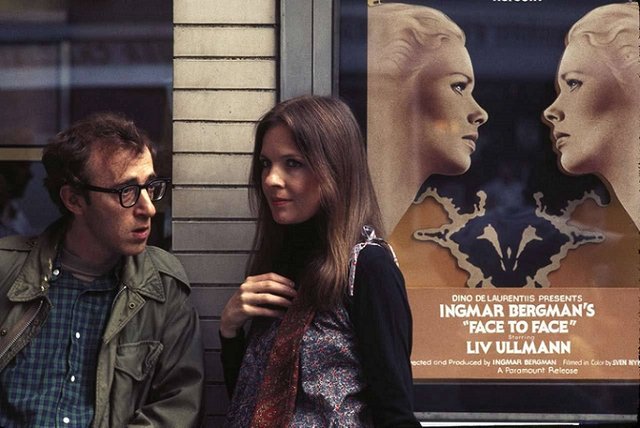
For anyone who was ever charmed by Allen's use of language, script work, his way of delivering lines, his way of always playing the same roles himself, his frenzy, alienation, intelligence and foolishness, his categorization and judging, and his biting, sharp and blazing humor, this film in particular is not to be missed.
It's his Vertigo, his Wild Strawberries, or whatever you want. It's the Allen film that even Allen haters might appreciate. Not only is it possibly his best film, but also his most Allen. It's Allen to the power of a hundred. A parody of his style wouldn't get any closer than this. The script is so imbued with one-liners that they would last for ten other movies and make as many screenwriters proud and guarantee them a continued future in the industry. But here they pour so tightly that they cancel each other out, without adverse effect, but rather with the effect that the experience is only intensified. As a spectator you sit on edge of your seat to not miss a single small passage of the rapid exchange of lines.
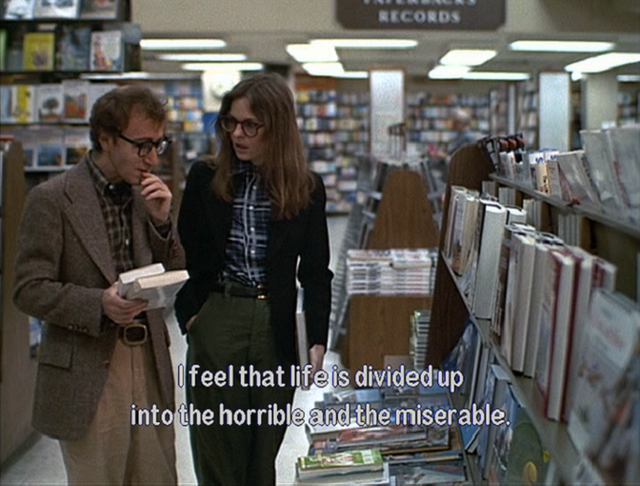
Despite this, it's nearly impossible to catch everything that is said in just one viewing, which is why Annie Hall not only can, but also should be viewed several times.
But the film would have been unbearable if it was just for Allen to squeeze as many jokes as possible in a short time. If it weren't for his absolute baring of his shortcomings, all those quirky and humorous comments wouldn't have the same effect. The tone is struck already in the opening scene. Allen speaks directly into the camera against a monochromatic background. He tells a few stories from which he draws parallels to his outlook on life. It's slightly resentful, bleak observations about the state of things, of what he has learned and where he stands today.
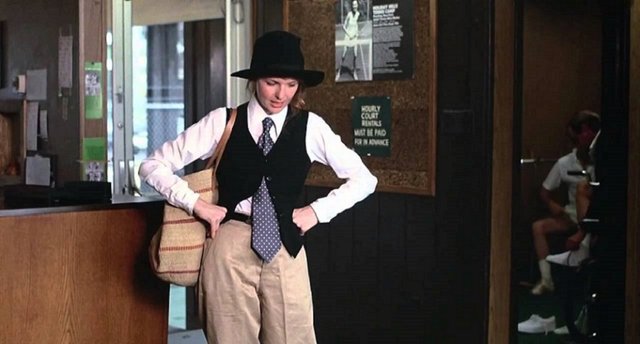
This kind of bare naked disclosure is in this film a greater keyword than anywhere else in his vast production. Several moments and scenes shows what's happening inside a human, rather than on the outside. In the classic balcony dialogue between Keaton and Allen we see texts that shows what the characters really think as they're saying something completely different.
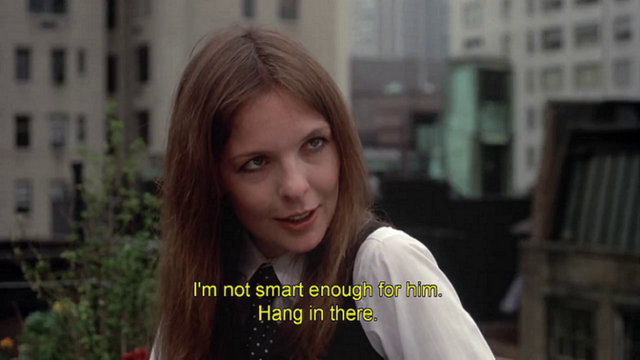
On another occasion Allen permanently demolishes the barrier, not only between the viewer and the medium (this barrier is as I said already broken in the opening scene), but also the frames of the film itself. When Allen finds himself irritated over the clumsy statements from a know-it-all about Marshall McLuhan's (famed professor of Media theory and communication) ideas, he's simply using McLuhan (who plays himself and is seen in the periphery of the image) to forward his arguments. It's fun and ingenious, and especially rewarding for those who are interested in McLuhan's ideas.
Perhaps the greatest scene in the movie however, is a lobster related fight in a kitchen where Allen and Keaton tries to tame their living dinner crawling around on the floor. Both actors are so overexcited by the scene that none of them can fully maintain character, and the result is a gambit that provides equal parts fiction and reality.

Diane Keaton is brilliant in the role of Annie. She babbles, make remarks, charms and is charmed by Allen. She is the perfect antithesis and balance to his excessively persistent volubility that whips through the entire film like a dense summer rain.
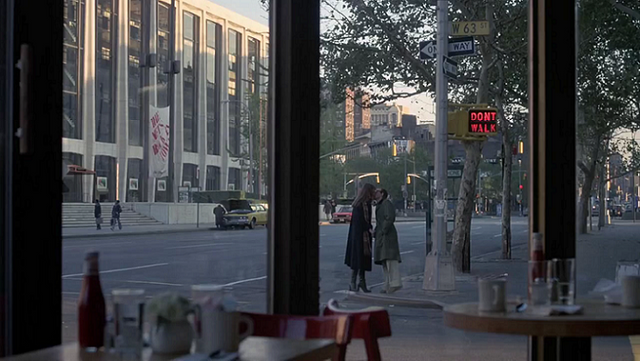
Annie Hall is a film to fall in love and break up along with, and to remember why you fell in love with someone and to feel and experience it all over again. It's a testament to the fact that the brain and heart can go hand in hand.
Such a classic! I wanna add some trivia! The balcony scene terrified Woody Allen because of his fear of heights and he insisted on a location where he can't visually see how far up he was. Also, Woody almost always shot his movies on overcast days, to save on the film budget for additional lighting. ;)
I did not know that, but I'm not surprised lol. Thanks for the trivia!
Cool @steemswede ... you give me some serious competition in film reviews :-) .. keep it going .-)
Likewise buddy!
Dear steemswede pleaze mail [email protected]
Re forensic history.
Great posting here!